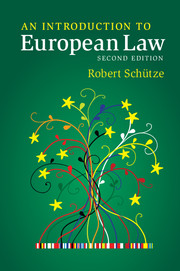Part III - European Law: Substance
Summary
This final Part analyses the substantive heart of European law. When the Union was founded, its central aim was the creation of a “common” or “internal” market between the Member States. Such an internal market was to go well beyond a free trade area or a customs union. Its aim was to create an area without internal frontiers to the free movement of goods, persons, services, and capital. To guarantee these four fundamental freedoms, the EU Treaties pursue a dual strategy: negative and positive integration. Negative integration refers to the removal of illegal national barriers to trade, whereas positive integration means Union legislation that “harmonizes” national laws. Chapters 9 and 10 will explore both strategies in the context of the free movement of goods. Chapter 11 then analyses the free movement of persons. Finally, Chapter 12 wishes to offer an “introduction” to EU competition law. The latter is traditionally seen as a functional complement to the internal market.
- Type
- Chapter
- Information
- An Introduction to European Law , pp. 219 - 220Publisher: Cambridge University PressPrint publication year: 2015



